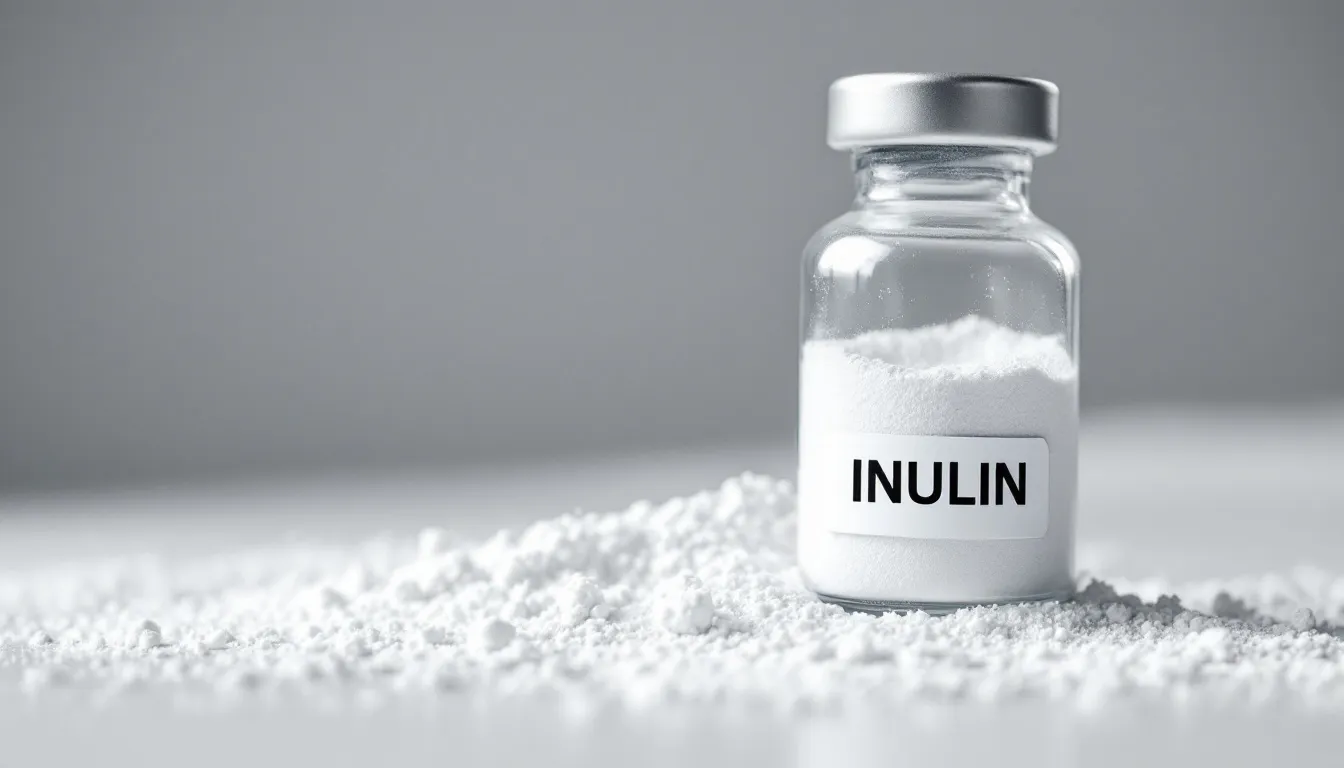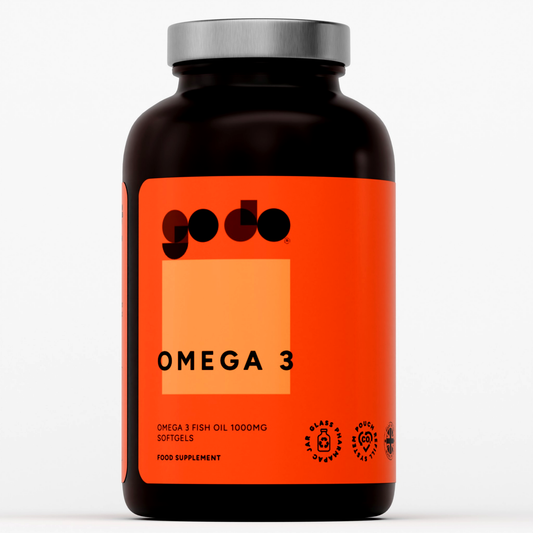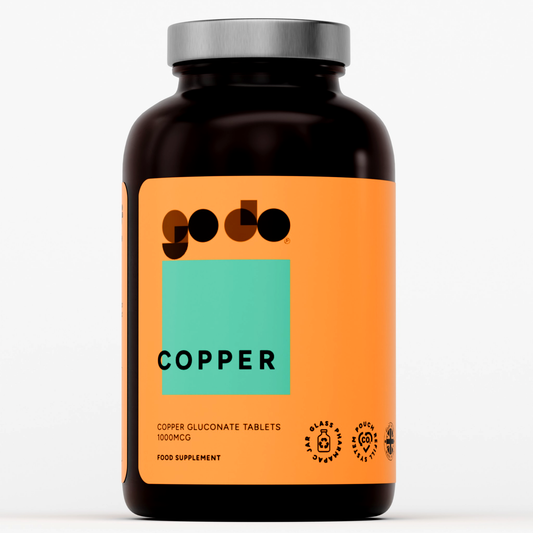Inulin for Sleep: How This Prebiotic Can Enhance Your Rest Quality
Understanding Inulin: The Sleep-Supporting Prebiotic Fiber
Inulin represents a remarkable soluble fiber with powerful prebiotic properties that creates a foundation for optimal gut health, which research increasingly shows plays a crucial role in sleep quality and overall wellness. Inulin is a type of soluble dietary fibre and prebiotic fibre found in many plant-based foods, and it is an important form of dietary fibre. This naturally occurring compound works by fostering the growth of beneficial gut bacteria, creating a thriving microbiome that supports not only digestive health but also influences sleep patterns through the complex gut-brain connection.
As a convenient supplement available in powder form, inulin has gained recognition for its ability to improve multiple aspects of health simultaneously. As one of the key prebiotic fibres, inulin contributes to daily dietary fibre intake and supports colon health. The growing body of research surrounding inulin’s sleep benefits has even attracted attention from major health documentaries, including “The Truth About Sleep,” which highlighted how this simple prebiotic can significantly enhance both sleep quality and duration through its unique mechanisms of action.
The health benefits of inulin extend far beyond basic digestive support, encompassing improved sleep quality, enhanced weight management, and better blood sugar control. This multifaceted approach makes inulin particularly valuable for individuals seeking comprehensive health improvements through a single, natural supplement that addresses multiple wellness concerns simultaneously.
The Science Behind Inulin: Understanding This Unique Prebiotic
Inulin belongs to a special class of soluble fibres composed of fructose units linked by beta (2-1) glycosidic bonds and terminated with a glucose unit. This unique molecular structure allows inulin to resist digestion in the small intestine, enabling it to travel intact to the large intestine where it forms a gel like substance upon absorbing water. As a prebiotic fibre, inulin performs its most important functions by nourishing the gut microbiota.
Unlike many other fibers that simply add bulk to stool, inulin serves as a selective food source for beneficial gut bacteria, particularly Bifidobacteria and Lactobacilli. These beneficial microorganisms ferment inulin, producing short-chain fatty acids and other beneficial compounds that support gut health, maintain a balanced gut microbiota, and influence various physiological processes, including those that regulate sleep-wake cycles.
Natural sources of inulin include chicory root, which contains the highest concentrations, as well as garlic, asparagus, Jerusalem artichokes, and onions. However, obtaining therapeutic amounts through diet alone can be challenging, making inulin powder supplements a practical and convenient option for those seeking to maximize their intake and experience the full range of health benefits.
The convenience of inulin powder makes it easy to incorporate into daily routines, allowing individuals to significantly increase their soluble fibre intake while supporting a healthy gut microbiome that can positively influence sleep patterns and overall health outcomes.

Comprehensive Health Benefits of Inulin Supplementation
Digestive Health and Microbiome Support
Inulin provides exceptional support for digestive health by promoting the growth and activity of beneficial gut bacteria while helping to maintain a balanced microbiome. This prebiotic action supports immune function, as approximately 70% of the immune system resides in the gut, making microbiome health crucial for overall wellness and disease prevention.
The fermentation of inulin by beneficial bacteria produces short-chain fatty acids, including butyrate, acetate, and propionate, which serve as energy sources for colon cells and help maintain intestinal barrier function. This process supports gut integrity and reduces inflammation, creating an environment that promotes better nutrient absorption and overall digestive wellness. In addition, inulin is known for increasing stool frequency and promoting bowel regularity, making it beneficial for those experiencing constipation.
Some individuals may experience loose stools when first increasing inulin intake, especially if the dosage is raised too quickly.
Metabolic Health and Weight Management
Research demonstrates that inulin supplementation can significantly support weight management efforts by promoting feelings of fullness and reducing appetite through multiple mechanisms. The prebiotic effects of inulin influence the production of hormones like GLP-1 and PYY, which signal satiety to the brain and help prevent overeating. In addition, inulin may help reduce appetite and support weight loss, making it a valuable component of a weight management strategy.
Additionally, inulin supports healthy blood sugar control by slowing glucose absorption and improving insulin sensitivity. This metabolic support can help reduce cravings for high-calorie foods and support sustainable weight management when combined with a balanced diet and regular exercise.
Cardiovascular and Anti-Inflammatory Benefits
The beneficial bacteria supported by inulin produce compounds that have anti-inflammatory effects throughout the body, potentially reducing the risk of chronic diseases and supporting cardiovascular health. Inulin's positive impact on cardiovascular health also promotes heart health, making it a valuable addition to a balanced diet. These anti-inflammatory benefits may also contribute to improved sleep quality, as chronic inflammation can interfere with normal sleep patterns.
A high-fiber diet that includes adequate inulin intake has been associated with reduced risk of developing various digestive disorders, including diverticulitis, and may support overall longevity through its multiple health-promoting mechanisms.

How Inulin Influences Sleep Quality and Duration
The Gut-Brain Axis Connection
Inulin’s impact on sleep quality operates primarily through the gut-brain axis, a complex communication network that connects the digestive system with the central nervous system. The good bacteria that thrive on inulin play a key role in improving sleep and supporting healthy sleeping patterns. These good bacteria produce various neurotransmitters and signaling molecules that can influence mood, stress levels, and sleep patterns.
Research has shown that a healthy gut microbiome supported by prebiotic fibers like inulin can improve both non-REM and REM sleep quality, leading to more restorative rest and better recovery. The good bacteria produce compounds like GABA, which has calming effects on the nervous system and can promote relaxation and sleep readiness.
Stress Reduction and Sleep Preparation
Inulin supplementation has been associated with reduced stress and anxiety levels, making it easier to fall asleep and maintain quality sleep throughout the night. Research from the University of Colorado has shown that prebiotics like inulin can improve non rem sleep following a stressful event, highlighting their potential to enhance sleep quality after periods of stress. The prebiotic’s ability to support a balanced microbiome may help regulate cortisol levels and other stress hormones that can interfere with normal sleep patterns.
The fermentation products of inulin also include compounds that can influence the production of serotonin, a neurotransmitter that plays a crucial role in mood regulation and sleep-wake cycles. Higher serotonin levels can contribute to better sleep quality and more stable mood throughout the day.
Inflammation Reduction and Recovery
The anti-inflammatory effects of inulin may contribute significantly to its sleep-enhancing properties. Chronic low-grade inflammation can disrupt sleep architecture and reduce sleep quality, while the beneficial compounds produced through inulin fermentation help reduce inflammatory markers and promote better recovery during sleep.
Taking inulin as part of an evening routine, perhaps combined with other relaxation practices like a warm bath, may help optimize its sleep-promoting effects and create a consistent bedtime routine that supports better rest quality.
Practical Guidelines for Inulin Consumption
Dosage and Timing Recommendations
The recommended daily intake of inulin typically ranges from 5-10 grams, though this amount can be gradually increased based on individual tolerance and health goals. Starting with a lower dose allows the gut microbiome to adjust gradually, reducing the likelihood of digestive discomfort while maximizing the beneficial effects.
For sleep support, many individuals find it beneficial to take inulin in the evening, as this timing allows the fermentation process to occur during sleep hours when the body is focused on rest and recovery. However, inulin can be taken at any time of day based on personal preference and digestive tolerance.
Integration Methods and Practical Tips
Inulin powder offers exceptional versatility and can be easily incorporated into various foods and beverages without significantly altering taste or texture. Popular integration methods include adding inulin to smoothies, oatmeal, yogurt, or even water. The neutral taste of most inulin supplements makes it easy to include in daily nutrition routines. Inulin can be seamlessly added to your daily routine, supporting ongoing benefits such as improved digestive health and overall well-being.
When consuming inulin, it’s essential to maintain adequate hydration by drinking plenty of water throughout the day. This helps the fiber move through the digestive system effectively and prevents potential constipation while supporting optimal gut function and the fermentation process.
Gradual Introduction Strategy
To minimize potential digestive discomfort, begin with 2-3 grams of inulin daily and gradually increase the dose by 1-2 grams every few days until reaching the desired amount. This gradual approach allows beneficial bacteria populations to increase steadily while reducing the risk of temporary side effects like bloating or gas.
Consistency in timing and dosage helps establish regular beneficial bacteria populations and maximizes the sleep and health benefits of inulin supplementation. Creating a routine around inulin consumption can also serve as a helpful sleep hygiene practice.
Important Safety Considerations and Medication Interactions
Medical Consultation and Precautions
Before beginning inulin supplementation, individuals taking medications should consult with healthcare providers, particularly those using blood thinners, diabetes medications, or other prescription drugs that might interact with fiber supplements. Inulin can potentially affect medication absorption timing and effectiveness in some cases.
People with existing digestive conditions, such as irritable bowel syndrome (IBS) or small intestinal bacterial overgrowth (SIBO), should approach inulin supplementation with particular caution and medical guidance, as these conditions may require modified dosing or specialized treatment approaches.
Nutrient Absorption Considerations
High-fiber supplements like inulin may reduce the absorption of certain nutrients, including iron, calcium, and fat-soluble vitamins, when taken simultaneously. To minimize these interactions, consider taking inulin at different times from other supplements or medications, allowing at least 2-3 hours between doses when possible.
Regular monitoring and communication with healthcare providers can help ensure that inulin supplementation supports rather than interferes with overall health goals and medical treatments. Professional guidance is particularly valuable for individuals with complex health conditions or multiple medications.
Ongoing Research and Individual Variation
While current research on inulin is promising, scientists continue studying its long-term effects and optimal usage patterns. Research found that inulin supplementation can improve sleep quality in some individuals, though responses may vary. Individual responses to inulin can vary significantly based on existing gut microbiome composition, diet, lifestyle factors, and genetic variations that influence fiber metabolism.
Keeping a simple diary of sleep quality, digestive symptoms, and overall well-being can help track individual responses to inulin supplementation and guide dosage adjustments for optimal results.
Managing Potential Side Effects and Optimization Strategies
Common Initial Reactions
When first starting inulin supplementation, some individuals may experience temporary digestive symptoms including bloating, gas, or changes in bowel movements. These effects typically occur as the gut microbiome adjusts to increased prebiotic availability and usually resolve within 1-2 weeks of consistent use.
The severity and duration of initial side effects often correlate with starting dose and individual gut health status. People with previously low fiber intake may experience more noticeable adjustment symptoms compared to those already consuming high-fiber diets.
Minimizing Discomfort
To reduce potential side effects, start with the lowest effective dose and increase gradually while maintaining consistent hydration. Spreading inulin intake throughout the day rather than taking large single doses can also help minimize digestive discomfort while still providing beneficial effects.
If side effects persist beyond two weeks or become severe, consider reducing the dose temporarily before gradually increasing again, or consult with a healthcare provider for personalized guidance on optimal dosing strategies.
Recognizing Serious Reactions
While rare, some individuals may experience allergic reactions to inulin supplements. Signs of serious reactions include persistent abdominal pain, severe diarrhea, skin rashes, or difficulty breathing. Any concerning symptoms should prompt immediate medical attention and discontinuation of supplementation.
Most people tolerate inulin well when introduced gradually and used consistently, but individual monitoring and responsiveness to body signals remain important for safe and effective supplementation.

Cognitive Function and Mood Enhancement Benefits
Brain Health Through Gut Health
Emerging research suggests that inulin's support of gut microbiome health may extend to cognitive function improvements through the gut-brain axis. The beneficial bacteria that thrive on inulin produce various compounds that can cross the blood-brain barrier and influence neurotransmitter production and brain function.
Studies indicate that prebiotic supplementation, including inulin, may help improve mood stability, reduce anxiety levels, and support cognitive clarity. These mental health benefits can contribute to better sleep quality by reducing racing thoughts and worry that often interfere with falling asleep.
Stress Response and Emotional Regulation
The microbiome's influence on the hypothalamic-pituitary-adrenal (HPA) axis means that inulin supplementation may help regulate stress hormone production and improve emotional resilience. Better stress management naturally supports improved sleep quality and overall mental well-being.
While research in this area continues to evolve, early findings suggest that consistent inulin use may contribute to more stable mood and better stress coping mechanisms, creating a positive cycle that supports both mental health and sleep quality.
Long-term Cognitive Support
The anti-inflammatory effects of inulin may also support long-term brain health by reducing neuroinflammation that can contribute to cognitive decline and mood disorders. Regular prebiotic supplementation may therefore offer both immediate sleep benefits and long-term cognitive protection.
Further research is needed to fully understand these cognitive benefits, but current evidence suggests that inulin's effects extend well beyond digestive health to support overall mental wellness and cognitive function.

Weight Management and Metabolic Benefits
Appetite Control and Satiety
Inulin's ability to promote feelings of fullness operates through multiple mechanisms, including the production of satiety hormones and slower gastric emptying. These effects can help reduce overall caloric intake and support sustainable weight management when combined with healthy lifestyle choices.
The prebiotic effects of inulin also influence the production of short-chain fatty acids that can improve insulin sensitivity and glucose metabolism, supporting stable blood sugar levels that help prevent energy crashes and food cravings.
Body Composition Improvements
Research has shown that inulin supplementation may help reduce visceral fat accumulation while supporting lean muscle mass maintenance. These body composition improvements can contribute to better overall health and may also support improved sleep quality through reduced inflammation and better metabolic health.
The combination of improved gut health, better blood sugar control, and enhanced satiety makes inulin a valuable tool for individuals pursuing weight management goals as part of a comprehensive health improvement strategy.
Metabolic Health Integration
Regular inulin use may support overall metabolic health by improving insulin sensitivity, reducing inflammation, and supporting healthy cholesterol levels. These metabolic improvements create a foundation for better energy levels, mood stability, and sleep quality throughout the day.
A healthy lifestyle that includes balanced nutrition, regular physical activity, and adequate sleep remains essential for achieving and maintaining optimal weight and metabolic health, with inulin serving as a supportive tool in this comprehensive approach.
Conclusion: Integrating Inulin for Better Sleep and Health
Inulin represents a scientifically-backed, natural approach to improving sleep quality through its powerful prebiotic effects on gut health and the gut-brain axis. The evidence supporting inulin’s ability to enhance sleep duration and quality, while simultaneously providing benefits for digestive health, weight management, and blood sugar control, makes it an attractive option for individuals seeking comprehensive health improvements.
The convenience and versatility of inulin powder supplementation make it easy to incorporate into daily routines, while its excellent safety profile and natural origins provide confidence for long-term use. When introduced gradually and used consistently, inulin can serve as a valuable foundation for better sleep and overall wellness.
While inulin is not classified as a traditional sleep aid, it may support sleep quality indirectly by improving gut health, which is closely linked to sleep regulation. While individual responses may vary, the growing body of research supporting inulin’s health benefits, combined with its recognition in major health documentaries and scientific literature, suggests that this simple prebiotic fiber offers genuine potential for improving sleep quality and supporting overall health goals.
For those seeking natural approaches to better sleep and comprehensive health improvement, inulin supplementation represents a promising strategy that addresses multiple aspects of wellness simultaneously. By supporting gut health, reducing inflammation, and influencing the gut-brain axis, inulin offers a holistic approach to better rest and enhanced quality of life that aligns with the body’s natural systems and processes.
As research continues to explore the full potential of prebiotic supplementation, inulin stands out as a well-studied, accessible option for individuals committed to optimizing their sleep quality and overall health through evidence-based, natural interventions.














